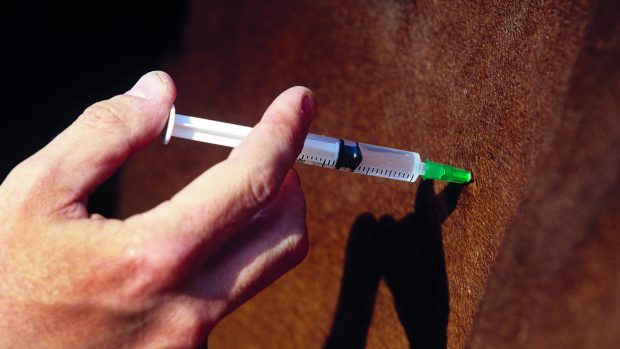Three horses have been euthanased and 42 have been under observation on the north Devon racing yard where the equine herpes virus (EHV-1) was found last month.
But it is unlikely that horses outside the yard will be affected, a top vet working on the outbreak has told H&H.
Samples from the horses on Victor Dartnall’s yard — which include 36 in training — have been sent to the Animal Health Trust (AHT).
AHT head of epidemiology and disease surveillance Richard Newton said it was almost impossible to pinpoint where the EHV-1 outbreak came from, as many horses carry the virus without showing signs.
“Horses are exposed to the virus when they are young and it re-emerges at times of stress,” he said.
“The equine community is in no more danger now than at any other time. We get a handful of outbreaks every year, but they are not all on high-profile yards [like Mr Dartnall’s].”
He added that the virus “does not spread very readily”.
Mr Dartnall estimates that a quarter of the horses on his yard are affected, with signs varying from a high temperature, to the three whose paralysis was so serious they had to be put down.
He has been able to keep his other horses in work, but they have not been allowed to race.
One of the dead horses was Pocket Too, a nine-year-old gelding, who won four times on the Flat and eight over jumps.
“He was a lovely, honest horse and ran his best race a week before he died, winning at Chepstow [on 7 November],” added Mr Dartnall.
This news story was first published in the current issue of H&H (6 December 2012)




